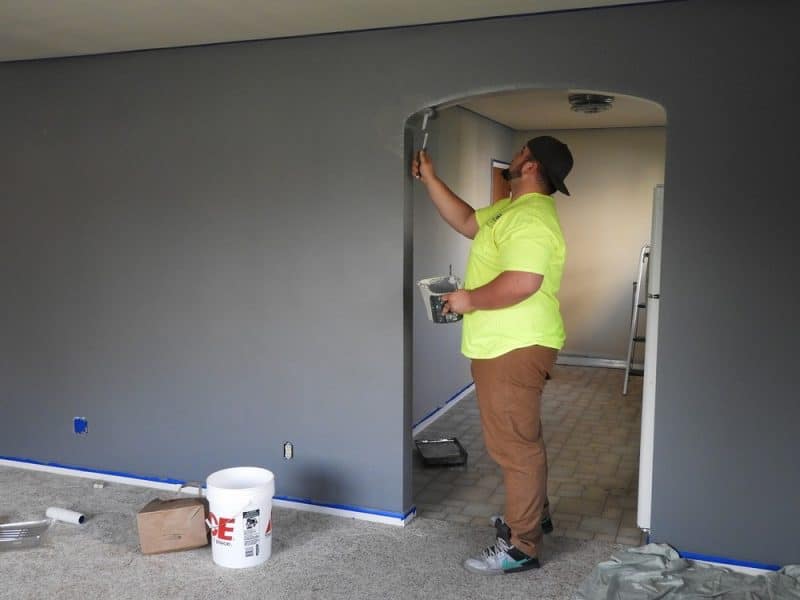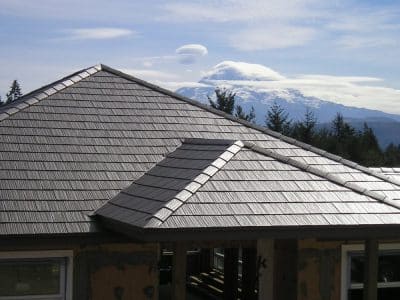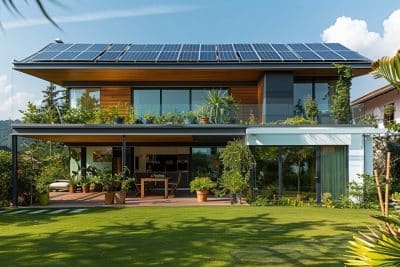
For homeowners, home insurance is an essential financial safety net that protects against liabilities and unexpected disasters. However, many are unaware that certain home upgrades can significantly impact their insurance premiums and coverage. Whether upgrading your roof or installing a security system, understanding how these changes affect your home insurance is crucial for making informed decisions.
This article will explore six major home improvements that impact your home insurance. It will help you navigate the complexities of insurance plans and ensure your house is adequately covered.
Roof Upgrades
Your roof is one of the most critical components of your home, providing protection from the elements and maintaining structural integrity. Many homeowners opt to repair or renew their roofing for various reasons, including a high return on investment. According to Buy Side from the Wall Street Journal, roof upgrades can yield 50% to 60% returns, depending on the material. For instance, a roof with asphalt shingles costs around $30,000 and offers 60% returns, while metal roofs cost an average of $50,000 and provide 50% returns. Additionally, roof upgrades can save you money on insurance premiums.
Materials, age, and durability significantly impact insurance premiums when upgrading your roof. For example, installing new asphalt shingles can reduce the likelihood of hail damage, potentially lowering insurance costs. Furthermore, newer roofs may qualify for discounts or incentives from insurance providers due to their lower risk of leaks and structural issues.
Fire Protection Measures
Fire poses a significant threat to homeowners, causing devastating losses and risks to lives and property. According to the National Fire Protection Association (NFPA), fire departments responded to around 1.5 million fires in the US in 2022, resulting in an estimated $18 billion in property damage. Various types of home insurance protect your property from fire damage, including basic homeowners insurance, renters insurance, condo insurance, and mobile home insurance.
Installing fire safety devices such as sprinkler systems, fire extinguishers, and smoke detectors can reduce risks and affect insurance costs. Insurance companies view homes with proactive fire prevention measures more favorably, often offering discounts for homes equipped with these safety features. This not only helps lower your premiums but also ensures adequate coverage in the event of a fire.
Home Security Systems
The global home security systems market is booming, projected to reach $106.3 billion by 2030, according to GlobeNewswire. These systems can deter property damage caused by vandalism and theft. Investing in a robust home security system can save you money on insurance while enhancing your property’s safety.
Homes equipped with surveillance cameras, monitored security systems, and burglar alarms are often eligible for discounts from insurance companies. These upgrades reduce the risk of theft, vandalism, and property damage, making your home less likely to be the target of insurance claims. Consult your insurance provider before installing a security system to determine if you qualify for any discounts and if there are specific monitoring service requirements.
Electrical and Plumbing Updates
Outdated electrical and plumbing systems pose fire and water damage risks, potentially affecting your home insurance rates. Fire Rescue 1 states that electrical wires and wiring systems are the most common ignition sources in residential buildings, with electrical failure and malfunction being frequent causes. Upgrading electrical wiring, fuse boxes, and plumbing fixtures to meet current safety standards can mitigate these risks and lead to insurance savings. Homes with modernized electrical and plumbing systems are less likely to experience electrical fires and water leaks, reducing the likelihood of claims.
Impact-Resistant Windows and Doors
Windows and doors are the weakest points in your home’s defense against harsh weather and intruders. Installing impact-resistant windows and doors can enhance your home’s security and resilience while potentially lowering your insurance costs. According to Hippo, property damage is the most common claim category in homeowners insurance, with about 48% of these claims due to wind and hail damage.
Impact-resistant upgrades are designed to withstand strong winds, flying debris, and break-in attempts. Insurance providers may offer discounts for homes with these features, recognizing their added protection against storms, burglaries, and other perils.
Basement Waterproofing
Basements are particularly vulnerable to water damage, especially in areas prone to heavy rain or flooding. Waterproofing your basement can prevent water damage, mold growth, and foundation problems, potentially lowering your homeowner’s insurance costs. Insurance providers assess the risk of water-related claims when determining policy rates, making basement waterproofing a worthwhile investment. Installing sump pumps and moisture barriers can strengthen your home’s defenses against water intrusion and reduce the likelihood of basement flooding.
Frequently Asked Questions
Will Renovating My House Raise or Lower My Insurance Premiums?
It depends on the nature of the improvements. Upgrades that enhance safety and reduce hazards, such as installing a security system or replacing roofing materials, may result in lower premiums. Conversely, additions like swimming pools or trampolines could increase rates.
How Can I Verify That My House Insurance Coverage Appropriately Represents My Upgrades?
Inform your insurance provider of any changes to your house immediately. Schedule a policy review with your agent to ensure your coverage accurately reflects the upgrades and that your investment is adequately protected.
Are There Any Updates That May Terminate My Insurance Coverage?
Certain upgrades or renovations, such as DIY electrical work or significant structural alterations without required permits, may invalidate your insurance coverage. Always consult professionals and comply with building codes and regulations to avoid coverage issues.
Can I Make Modifications Expressly to Lower My Insurance Premiums?
Yes, certain renovations, like installing security systems or updating roofing materials, can lead to insurance discounts. However, prioritize improvements that enhance safety and reduce risks over those solely aimed at lowering premiums.
Will My Insurance Cover the Cost of Upgrades and Renovations?
Typically, home insurance policies do not cover the cost of upgrades or renovations. However, they may cover losses caused by insured perils, such as fire or theft, including damages to your home’s upgraded amenities.
Conclusion
To conclude, home upgrades play a significant role in shaping homeowners’ insurance premiums and coverage options. From roof replacements to security system installations, each improvement can affect your home insurance. Understanding how these upgrades impact your policy can help you make informed decisions to protect your investment. Consult with your insurance provider before embarking on home upgrades to explore potential discounts and requirements, ensuring peace of mind and financial protection.








